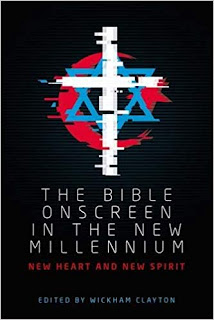A Few Moments of Silence

Martin Scorsese's Silence is a film of contradictions. Narratively simple, but thematically complex. Hauntingly beautiful, yet unbearable ugly in so much of what it portrays. Its a film that bears so many of the hallmarks of Scorsese's style yet feels completely different to anything he has produced before.
So much of the film is encapsulated in the opening scene of Jesuit priests and Japanese inquisitors amongst the hills supposedly just outside Nagasaki, where geothermal pools of boiling water create an eerie beauty. Yet as the scene unfolds the beauty changes to horror as the boiling water from the pools is dripped onto the Jesuits' backs as a form of torture. It's 17th century Japan and the shogunate inquisitors are attempting to stamp out Christianity in their country.
The film bears many of Scorsese's little touches, the violence, the close male friendships, the mentor and the charismatic character with the extreme personality. In some ways Silence is the polar opposite of Scorsese's last outing - the greed, sex and drug duelled lifestyle of The Wolf of Wall Street, but in other ways the two leads have much in common. Both men rush headlong in pursuit of their goals, driven by an undiluted vision. Father Rodrigues' determination to track down his predecessor in Japan may be far more laudable and morally pure than that of "The Wolf", but it also undoubtedly causes the most suffering - even if it is not he who is ultimately responsible for it.
Another one of Scorsese's repeated themes is the apparent silence of a hidden god. Here the theme is far more front and centre than one might expect. Rodrigues struggles with his faith and the question of whether he should respond to the crisis practically and recant to save lives and suffering, or should he remain faithful to his religion. The films refuses to provide any easy answers. Even Liam Neeson's pivotal speech is not entirely convincing. Is it about remaining resolute, or learning to compromise and respect others' beliefs? Morality or confession? Or is it about providing context to the cries of "persecution from the religious right. Thankfully it manages to steer clear of the white saviour complex... just about.
There's probably much more that could be said but, for now the above will have suffice.
Labels: Scorsese













0 Comments:
Post a Comment
<< Home